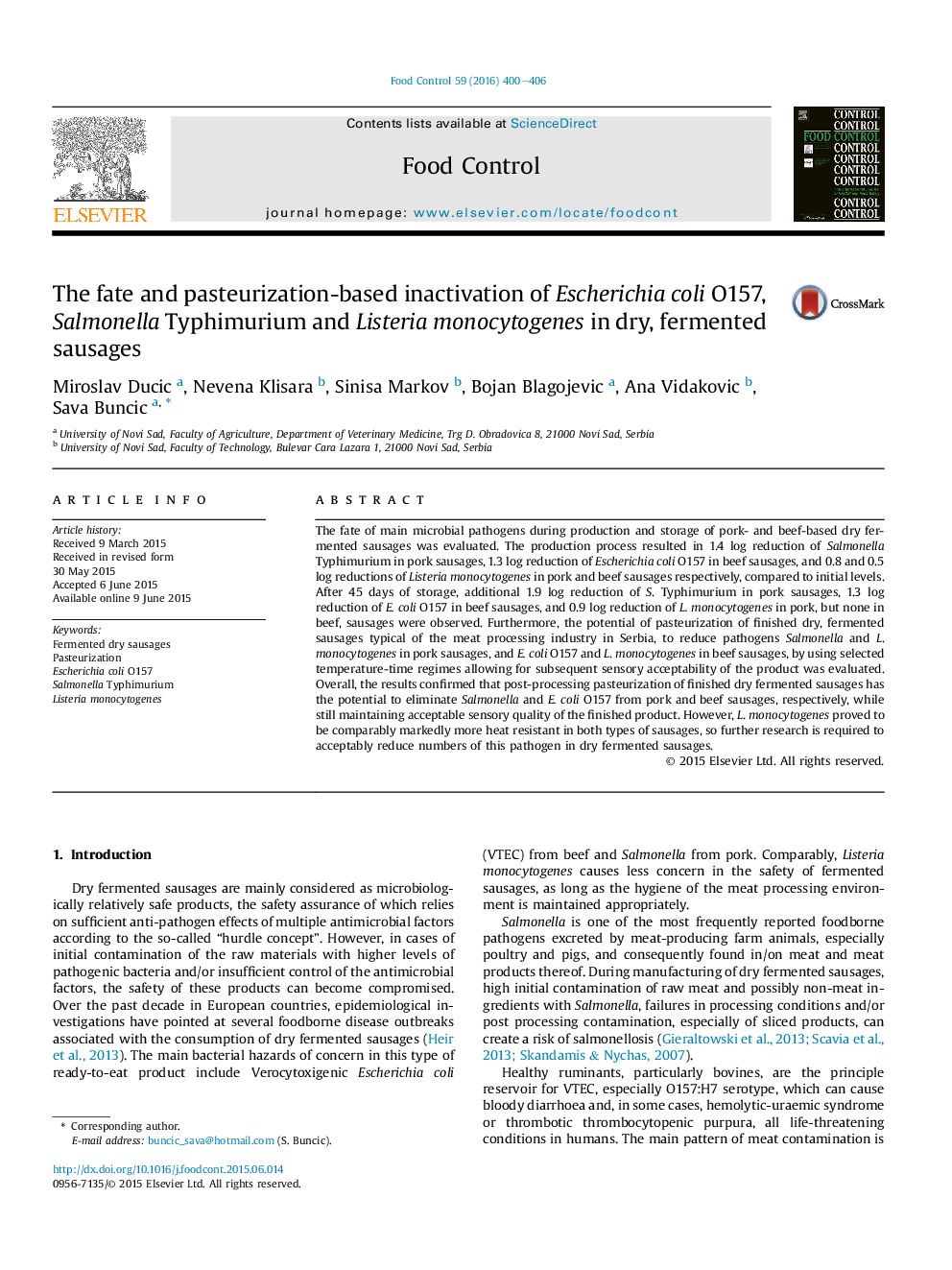| کد مقاله | کد نشریه | سال انتشار | مقاله انگلیسی | نسخه تمام متن |
|---|---|---|---|---|
| 6390592 | 1628403 | 2016 | 7 صفحه PDF | دانلود رایگان |

- Salmonella Typhimurium was reduced during production of pork sausages by around 1.4 logs.
- Escherichia coli O157 was reduced during production of beef sausages by around 1.3 logs.
- Listeria monocytogenes was not reduced markedly during production in pork or beef sausages.
- Pasteurization of finished sausages can eliminate S. Typhimurium and E. coli O157.
- L. monocytogenes is comparably more resistant to pasteurization than S. Typhimurium or E. coli O157.
The fate of main microbial pathogens during production and storage of pork- and beef-based dry fermented sausages was evaluated. The production process resulted in 1.4 log reduction of Salmonella Typhimurium in pork sausages, 1.3 log reduction of Escherichia coli O157 in beef sausages, and 0.8 and 0.5 log reductions of Listeria monocytogenes in pork and beef sausages respectively, compared to initial levels. After 45 days of storage, additional 1.9 log reduction of S. Typhimurium in pork sausages, 1.3 log reduction of E. coli O157 in beef sausages, and 0.9 log reduction of L. monocytogenes in pork, but none in beef, sausages were observed. Furthermore, the potential of pasteurization of finished dry, fermented sausages typical of the meat processing industry in Serbia, to reduce pathogens Salmonella and L. monocytogenes in pork sausages, and E. coli O157 and L. monocytogenes in beef sausages, by using selected temperature-time regimes allowing for subsequent sensory acceptability of the product was evaluated. Overall, the results confirmed that post-processing pasteurization of finished dry fermented sausages has the potential to eliminate Salmonella and E. coli O157 from pork and beef sausages, respectively, while still maintaining acceptable sensory quality of the finished product. However, L. monocytogenes proved to be comparably markedly more heat resistant in both types of sausages, so further research is required to acceptably reduce numbers of this pathogen in dry fermented sausages.
Journal: Food Control - Volume 59, January 2016, Pages 400-406